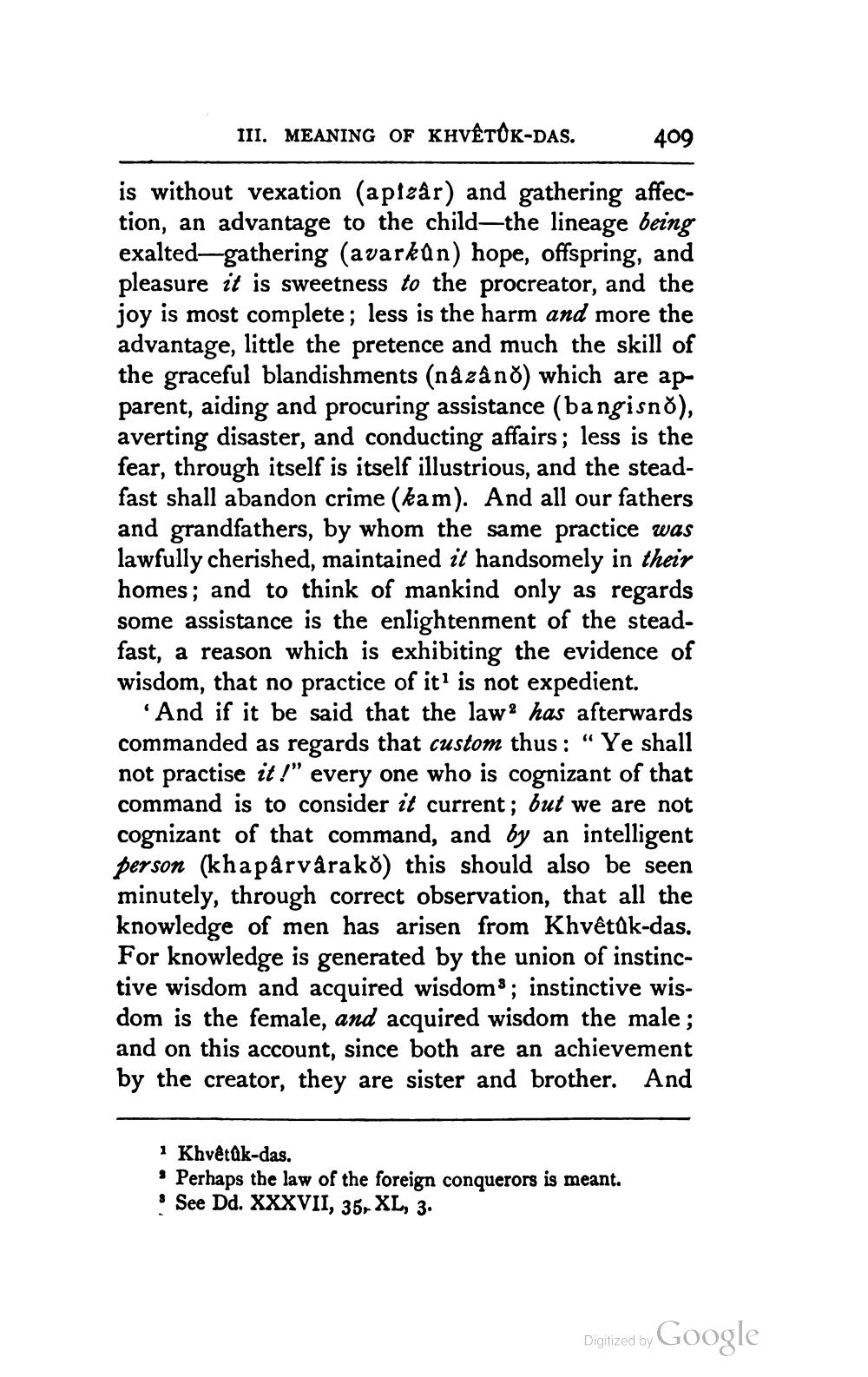________________
111. MEANING OF KHVÊTOK-DAS.
409
is without vexation (apizar) and gathering affection, an advantage to the child-the lineage being exalted-gathering (avarkan) hope, offspring, and pleasure it is sweetness to the procreator, and the joy is most complete; less is the harm and more the advantage, little the pretence and much the skill of the graceful blandishments (nâzâno) which are apparent, aiding and procuring assistance (bangisno), averting disaster, and conducting affairs; less is the fear, through itself is itself illustrious, and the steadfast shall abandon crime (kam). And all our fathers and grandfathers, by whom the same practice was lawfully cherished, maintained it handsomely in their homes; and to think of mankind only as regards some assistance is the enlightenment of the steadfast, a reason which is exhibiting the evidence of wisdom, that no practice of it is not expedient.
"And if it be said that the law has afterwards commanded as regards that custom thus: “Ye shall not practise it !" every one who is cognizant of that command is to consider it current; but we are not cognizant of that command, and by an intelligent person (khapårvårakó) this should also be seen minutely, through correct observation, that all the knowledge of men has arisen from Khvêtuk-das. For knowledge is generated by the union of instinctive wisdom and acquired wisdom>; instinctive wisdom is the female, and acquired wisdom the male ; and on this account, since both are an achievement by the creator, they are sister and brother. And
1 Khvêtûk-das. • Perhaps the law of the foreign conquerors is meant.
See Dd. XXXVII, 35, XL, 3.
Digitized by Google




